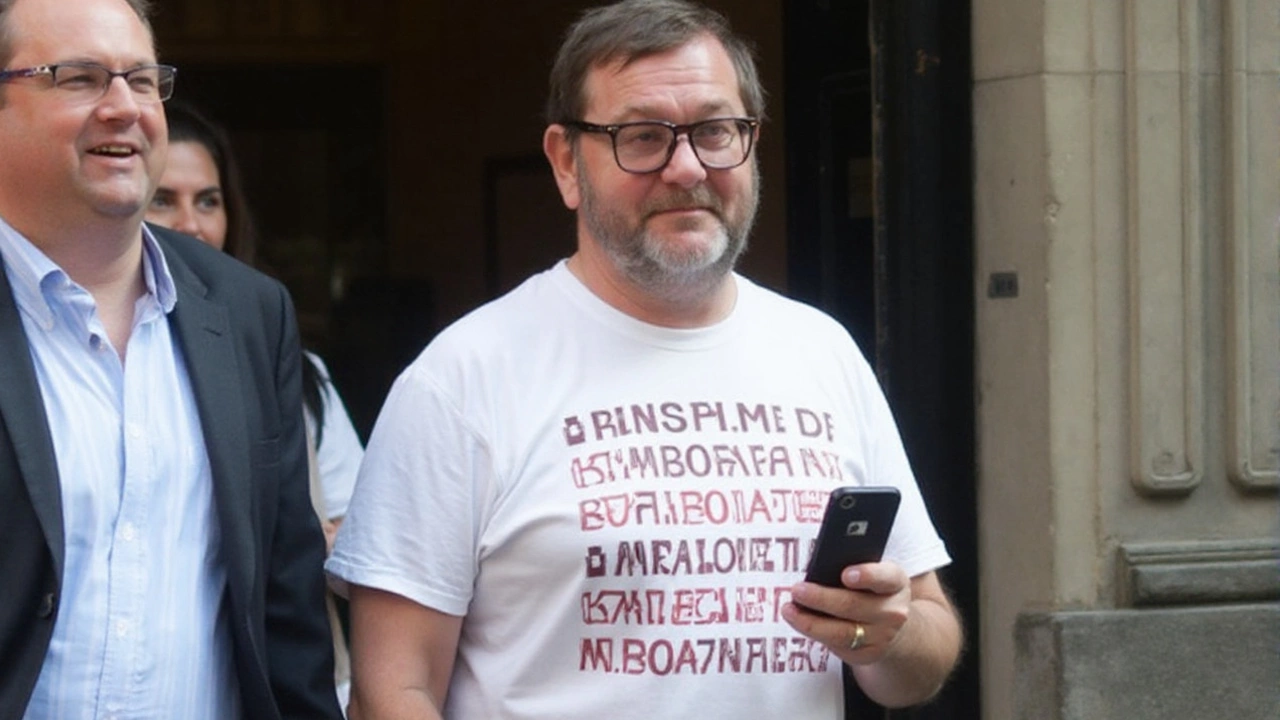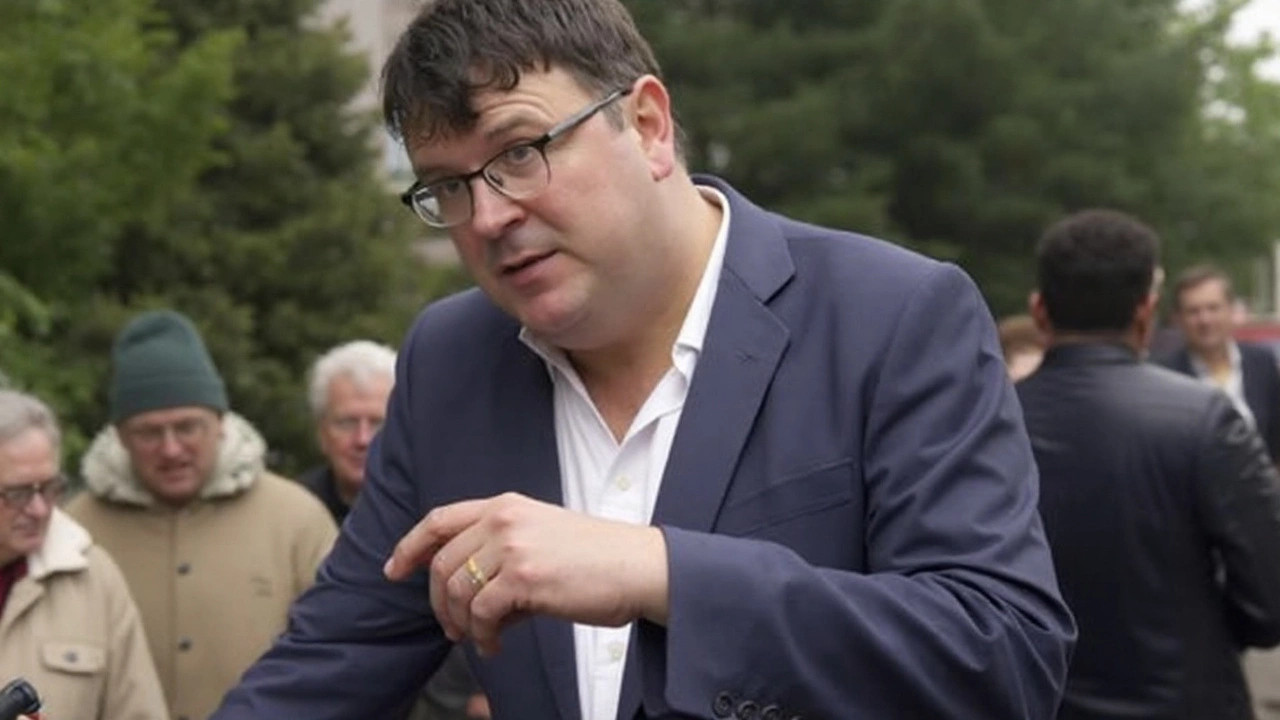Graham Linehan fronts test cases in Belfast discrimination claim against Robinson's
Graham Linehan, the writer behind Father Ted, has been named among eight lead cases in a discrimination lawsuit against Robinson's Bar in Belfast. He is one of 23 plaintiffs who say they were refused service on April 16, 2023, shortly after attending a Let Women Speak rally in the city. At a Belfast County Court review, the judge set out a first phase that will focus on those lead cases before dealing with the rest.
The plaintiffs argue they were turned away because of their gender critical views — namely, that sex is immutable and that access to women-only spaces should be based on biological sex. Their solicitor, Simon Chambers, said a recent Supreme Court decision has strengthened their hand. He said his clients believe the ruling supports their position and undercuts what he called the "collective madness" that led to their exclusion from the pub.
Chambers was referring to the For Women Scotland litigation, which campaigners say clarified that, in certain legal contexts, references to “woman” are grounded in biological sex. The specifics of that ruling will be tested in this case, but the plaintiffs see it as part of a growing legal trend that recognizes gender critical beliefs as legitimate and protected.
Wine Inns Ltd, which owns Robinson's, rejects the claims. The company denies any discrimination or less favorable treatment, and also denies allegations of assault involving one campaigner. Its position is that staff acted because of concerns about behavior and safety, not because of anyone’s political opinions or beliefs. In short, even if there was a difference in treatment on the day, the defense says it was not tied to the group’s views.
What is actually on trial here? Two things: whether the pub’s actions amounted to unlawful discrimination in providing services, and whether the claimants’ beliefs are protected in this context. In Britain, a 2021 employment appeal (the Forstater case) established that gender critical beliefs can qualify as protected philosophical beliefs at work. Northern Ireland’s equality framework is different from Great Britain’s, but protections in access to services and around political opinion are well established. The court will decide how those strands apply to what happened at Robinson’s.
The events that sparked the dispute were part of a wider, heated debate about gender identity, single-sex spaces, and free speech. Let Women Speak rallies have drawn both supporters and counter-protesters across the UK and Ireland. According to the plaintiffs, they tried to enter the city-centre bar after the Belfast rally and were refused because of their stance. The defense says any action taken was about managing a situation that was making staff uneasy, not about ideology.
Linehan’s involvement ensures the case will draw attention beyond Belfast. The comedy writer has been vocal in the gender debate for years and has faced cancellations and protests, including a high-profile Edinburgh Fringe venue pulling his show in 2023. Supporters see him as a prominent advocate for women’s rights and free expression. Critics say his stance harms trans people and fuels hostility. That split mirrors the wider culture clash this lawsuit sits inside.
Legally, the court will test familiar questions that often decide discrimination cases involving belief and expression in public settings: Did the claimants’ beliefs qualify for protection? Were they treated differently than others? If so, was there a legitimate reason unrelated to those beliefs, such as safety or preventing disorder? And even if there was a legitimate aim, was the response proportionate?
If the plaintiffs prevail, the court could award damages for injury to feelings and issue a declaration that unlawful discrimination occurred. It could also push venues to tighten policies and staff training on how to handle politically charged groups without tipping into discrimination. If the defense wins, it would bolster the argument that businesses can act on safety concerns even when political or belief issues are in the background, so long as decisions are not based on those beliefs.
For now, eight lead cases — including Linehan’s — will set the tone. They are expected to cover the shared facts and legal issues, providing a template for the remaining claims. No detailed timetable has been made public, but the case is certain to attract scrutiny from campaigners on all sides, hospitality operators, and anyone watching how courts navigate the fault line between belief, identity, and access to services.

Why this case could ripple beyond one Belfast bar
Venues across the UK and Ireland have faced pressure from both sides of the gender debate, from booking decisions to protests at the door. This case will help clarify what counts as discrimination in a service setting when staff are faced with a politically sensitive crowd. It also sits alongside recent legal developments that have reshaped the conversation — from the For Women Scotland litigation to workplace rulings on protected beliefs — even as the law in Northern Ireland follows a different path from Great Britain.
Whatever the outcome, the judgment will likely become a reference point for pubs, clubs, theaters, and event spaces dealing with contentious gatherings. It may not settle the broader culture war, but it will draw a line on what the law expects when beliefs, identity, and safety collide at the door of a busy bar.
